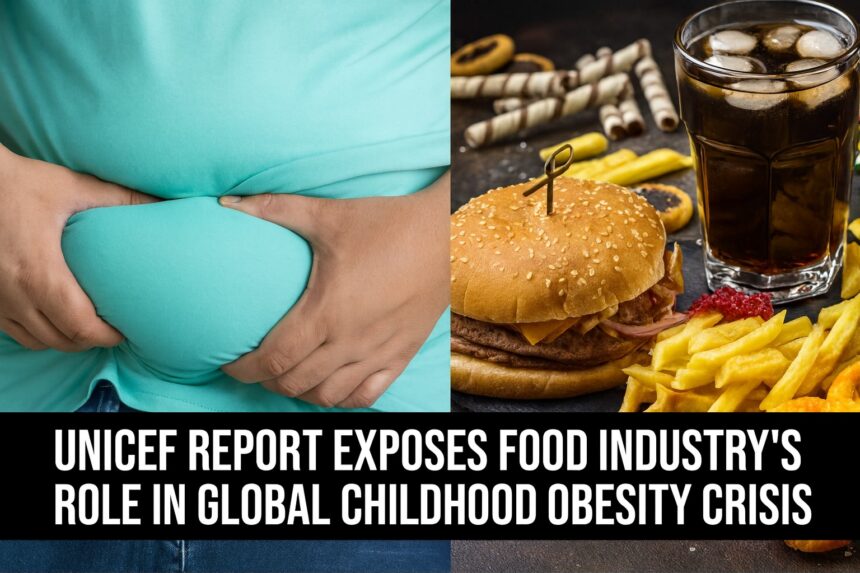UNICEF Report Exposes Food Industry’s Role in Global Childhood Obesity Crisis
A groundbreaking UNICEF report has sounded the alarm on a worsening global nutrition crisis, revealing that unhealthy, profit-driven food environments are fueling an unprecedented rise in childhood overweight and obesity. The report, “Feeding Profit: How food environments are failing children,” warns that the aggressive expansion of the ultra-processed food and beverage industry is undermining children’s health worldwide, even in countries still struggling with undernutrition.
The findings show a sharp surge in the number of overweight children and adolescents, with one in five aged 5 to 19 now affected. Since 2000, the number has more than doubled, soaring from 194 million to 391 million. For the first time, obesity among school-age children has overtaken underweight, marking a historic shift in the landscape of global malnutrition.
The crisis is hitting low- and middle-income countries the hardest. These nations now bear 81 percent of the global burden of overweight children, compared to 66 percent in 2000. UNICEF stresses that the rapid escalation in these regions is a direct reflection of changing diets dominated by cheap, unhealthy, and ultra-processed foods.
The report highlights how food environments have been overrun by sugary drinks, salty snacks, and fast foods that are aggressively marketed to children. These items are often more accessible and affordable than healthy alternatives. Evidence from multiple countries shows that more than half of young children consume sweet foods or drinks every day, while 60 percent of adolescents had more than one sugary product in just the previous day.
Digital marketing has further intensified the crisis. A UNICEF poll of young people aged 13 to 24 found that 75 percent had been exposed to online advertisements for unhealthy foods in just one week, with social media serving as the industry’s primary battleground.
The report also accuses the food and beverage industry of exploiting public health emergencies to expand its influence. During the COVID-19 pandemic, companies pushed digital marketing campaigns and positioned their products as essential, using corporate social responsibility as a cover for profit-driven agendas.
In direct response, UNICEF has outlined an urgent plan of action. The agency is urging governments to implement strong laws to restrict unhealthy food marketing, particularly in schools, and to safeguard policymaking from corporate interference. It calls for increased subsidies and incentives to make nutritious, locally produced food more accessible, alongside improved data systems to track children’s diets and policy outcomes. Families and communities, UNICEF emphasizes, must also be empowered to demand healthier environments for children.
UNICEF Executive Director Catherine Russell underscored the urgency of global cooperation, stating that with governments in the lead, supported by civil society and the private sector, every child’s right to nutritious food can be realized. The report makes clear that unless decisive global action is taken, millions of children will continue to suffer long-term health consequences as their well-being is sacrificed for industry profits.











